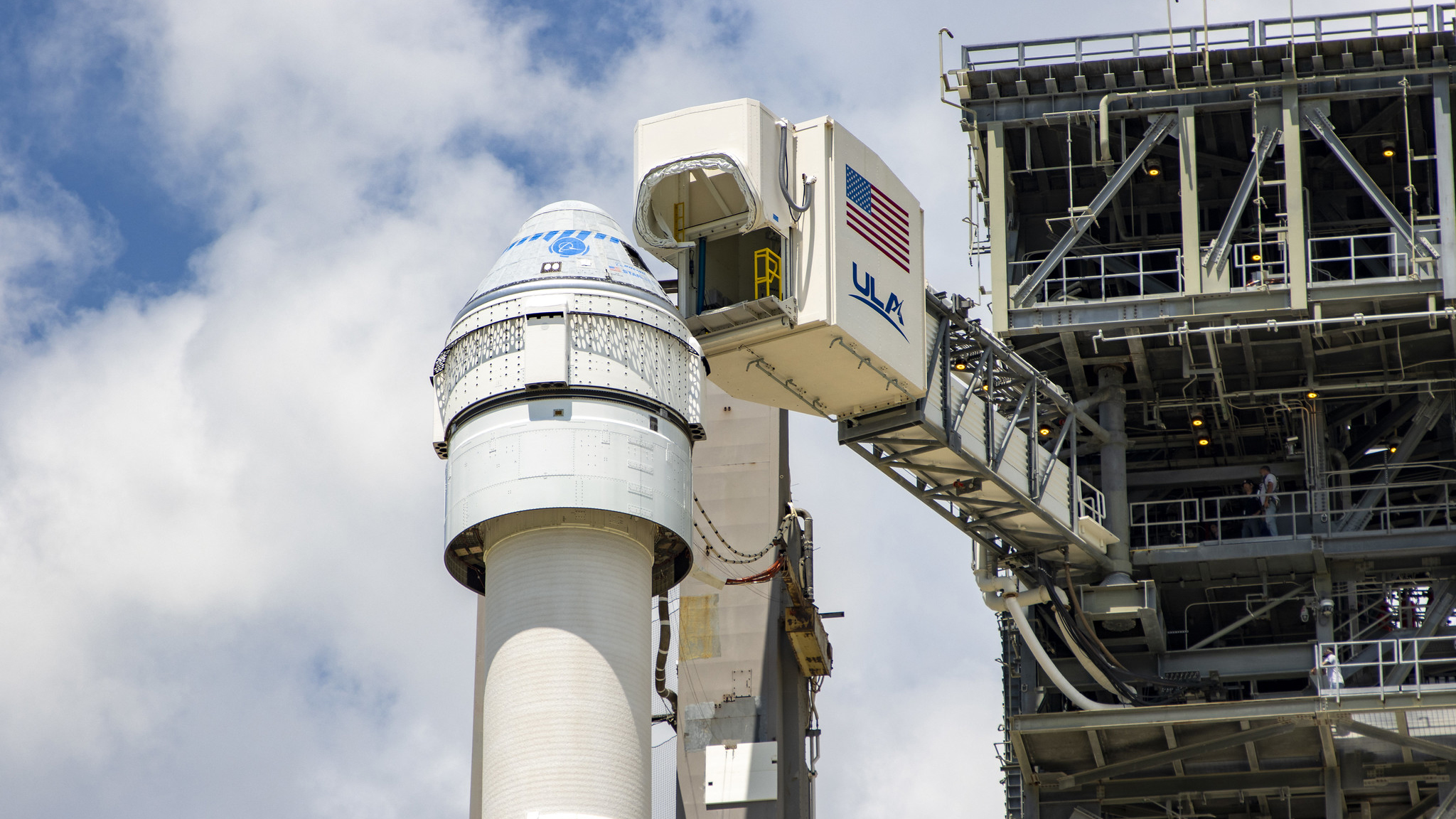Boeing's Starliner launch delayed yet again
Engineers found an unexpected issue with Starliner's propulsion system.

Update for 6 p.m. ET: NASA and Boeing have decided to stand down from Wednesday's backup launch attempt as officials investigate a valve issue on the Starliner spacecraft. The Altas V rocket and Starliner are scheduled to roll back from the launch site to the Vertical Integration Facility on Wednesday morning. The next available launch window has not yet been announced.
Boeing's Starliner astronaut taxi will have to wait to launch ... again.
This morning (Aug. 3), Boeing announced that its Starliner Orbital Flight Test-2 (OFT-2) mission, set to launch today, would be postponed due to unexpected issues with the craft's propulsion system, the company revealed in a statement. The next available launch opportunity for Starliner is tomorrow (Aug. 4), but the team hasn't yet confirmed it will pursue that window.
"During pre-launch preparations for the uncrewed test flight of the CST-100 Starliner spacecraft, Boeing engineers monitoring the health and status of the vehicle detected unexpected valve position indications in the propulsion system. The issue was initially detected during check outs following yesterday's electrical storms in the region of Kennedy Space Center," Boeing officials wrote in the statement.
"Consequently, the launch of the Starliner spacecraft to the International Space Station atop a United Launch Alliance Atlas V rocket will be postponed. The launch was scheduled for 1:20 p.m. ET on Tuesday, Aug. 3. Boeing and NASA teams are assessing the situation. The team will provide updates regarding a launch attempt on Wednesday, Aug. 4," the company added.
Related: Boeing Starliner Orbital Flight Test 2: Live updates
"We’re disappointed with today’s outcome and the need to reschedule our Starliner launch," John Vollmer, vice president and program manager, Boeing’s Commercial Crew Program, said in the statement. "Human spaceflight is a complex, precise and unforgiving endeavor, and Boeing and NASA teams will take the time they need to ensure the safety and integrity of the spacecraft and the achievement of our mission objectives."
Breaking space news, the latest updates on rocket launches, skywatching events and more!
NASA confirmed the delay and its root cause.
"NASA, Boeing and United Launch Alliance (ULA) have scrubbed the Aug. 3 launch attempt of the agency’s Orbital Flight Test-2 to the International Space Station due to unexpected valve position indications in the Starliner propulsion system. ULA will begin removing propellant from the Atlas V rocket," the agency said in a statement, adding that dependent on the resolution of this problem, they would be available to launch next tomorrow.
This news comes after another short delay, from the vehicle's previous launch date last Thursday (July 29), caused by issues concerning the mishap with Russia's Nauka module after docking with the International Space Station.
"We're confirming today's #Starliner Orbital Flight Test-2 launch is scrubbed. More details soon," Boeing tweeted this morning.
In photos: Boeing's Starliner Orbital Test Flight 2 mission to the International Space Station
We're confirming today's #Starliner Orbital Flight Test-2 launch is scrubbed. More details soon.August 3, 2021
Before the scrub was formally announced, NASA Administrator Bill Nelson alluded to this delay during his keynote address for this morning's International Space Station Research and Development Conference.
"Later today, NASA and Boeing's Starliner spacecraft, it was scheduled to launch. It will launch when it's right," he said.
"This is another step in certifying Starliner to transport crew to the ISS. Safe, reliable transportation to the ISS is exactly the vision that NASA had when the agency embarked on the Commercial Crew Program ten years ago," he added. "With Boeing and Spacex rotating missions, each carrying out four astronauts [to the ISS], we've already expanded the number of crew members at the ISS, effectively doubling the amount of weekly crew time that can be devoted to research. The more crew members, the more time that they can dedicate to scientific research. And the more research, the more results. "
OFT-2 is Boeing's second attempt at an uncrewed test flight of its Starliner vehicle to the space station. The flight will see the craft launch atop a United Launch Alliance Atlas V rocket, sending it to the station where it will dock, unload important cargo, and after some time return home to Earth.
With the success of this mission, Boeing aims to begin launching crewed missions, as SpaceX has done with its Crew Dragon capsule, to and from the orbiting lab.
Email Chelsea Gohd at cgohd@space.com or follow her on Twitter @chelsea_gohd. Follow us on Twitter @Spacedotcom and on Facebook.

Chelsea “Foxanne” Gohd joined Space.com in 2018 and is now a Senior Writer, writing about everything from climate change to planetary science and human spaceflight in both articles and on-camera in videos. With a degree in Public Health and biological sciences, Chelsea has written and worked for institutions including the American Museum of Natural History, Scientific American, Discover Magazine Blog, Astronomy Magazine and Live Science. When not writing, editing or filming something space-y, Chelsea "Foxanne" Gohd is writing music and performing as Foxanne, even launching a song to space in 2021 with Inspiration4. You can follow her on Twitter @chelsea_gohd and @foxannemusic.
